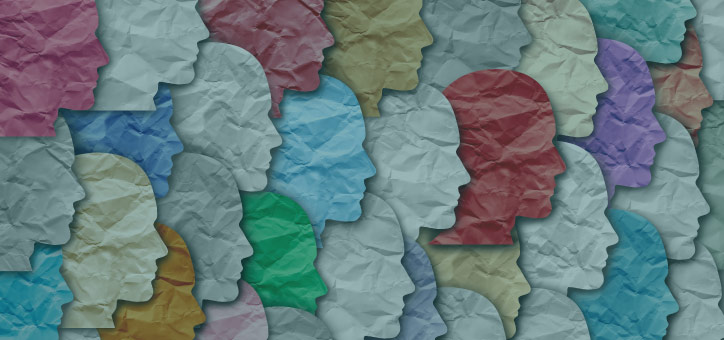Psychology, which is the study of the human mind and behavior, is a fascinating field encompassing a range of subtopics.
If you choose to study the field of psychology, you will eventually need to focus on the parts that reflect your interests and goals. First, you will have to choose between basic and applied psychology.
In order to define applied psychology, let’s take a look at the differences between these two fields.
What Is the Difference Between Basic Psychology and Applied Psychology?
The short answer is that basic psychology, also called experimental psychology, focuses on research, while applied psychology uses that research to find answers. Basic psychology relies on scientific methods to collect data and conduct research on the cognitive and behavioral aspects of humans.
Applied psychology, on the other hand, focuses on using research to solve problems related to humans and behavior. Applied psychology spans multiple sub-fields, such as health care, education fields, human resources, criminal justice, social services, and technology as well.
If you’re interested in the research end of things, you should probably go for basic psychology; whereas, if you want to apply research to real-life situations, applied psychology could be your pick.
What Are Examples of Applied Psychology?

Applied psychology can be difficult to define because of the comprehensive scope of the term. It might be easier to think of it this way: if psychology involves research, it is under the umbrella term of basic or experimental. If it involves applying research to tackle problems, then it is applied. However, within applied research, there is a myriad of other fields.
The following are considered subfields of applied psychology:
- Clinical psychology
- Forensic psychology
- Educational psychology
- Sports psychology
- Social psychology
One relevant example of applied psychology in action is it influences on developing technology. The American Psychological Association published an article on the impact of smart devices, including homes and vehicles. While these contraptions seem to make our lives easier, applied psychologists found that “these systems aren’t so clever if they’re too complicated to use.” Technology is constantly evolving within our digital age, and it takes applied psychology to figure out what works and what doesn’t.
Within forensic psychology, applied psychology is used to help support the justice system by analyzing the minds and behaviors of individuals convicted of a crime.
Throughout the educational realm, applied psychology allows professionals to use research in discussing issues such as the reliability of standardized testing in predicting a student’s academic success.
Applied psychology is also seen in marketing and advertising. For example, as you are browsing the internet, the advertisements you see are the works of applied psychologists asking questions about what appeals to different demographics.
What Do Applied Psychologists Do?
Applied psychologists are seen in every industry. For example, clinical psychologists provide mental and behavioral health care for individuals and families. These professionals apply psychological principles to how they interact with patients and design treatment plans.
Industrial-Organizational psychologists (called I/O psychologists) focus on solving work-related issues in recruitment, training, motivation, organizational development, and more. The goal of an I/O psychologist is to use applied psychology to offer solutions within businesses, academics, community, or health organizations.
Educational psychologists implement research on learning styles, online education, test-taking, and more. These applied psychologists work alongside educators and administrations to identify issues and implement solutions in educational settings.
Sports psychologists use applied research to help both professional and amateur athletes overcome obstacles and achieve their goals. They may help athletes cope with performance anxiety or recover from injuries.
Why Is Applied Psychology Important?

Applied psychology is important because studying what influences human behavior is where positive changes occur. Taking research and applying it to real-life situations is the backbone of this applied psychology, and because of this field, we have seen positive growth in just about every area of our lives, from education and sports to healthcare and the workplace.
Applied psychology depends on experimental research, but researchers depend heavily on the application, so they know what to study. You can’t have one field without the other, and they are both essential to solving problems in our world.
Should I Major in Applied Psychology?
If you’re interested in the inner workings of the human mind and how the mind influences behavior, a psychology degree may be for you. Studying psychology will allow you to understand human development and behavior and all the internal and external factors that influence it. You will also gain skills in critical thinking, research, conflict resolution, and management.
If the research is what intrigues you, you will want to study experimental psychology, but if you’re into a more hands-on approach, then go for applied psychology. Within the field of applied psychology, you can choose concentrations in education, health care, forensics, or sports. Applied psychology can also work well when paired with other majors, such as business, criminal justice, or education. Because the field of applied psychology is so versatile, the skills gained translate to any other industry.





